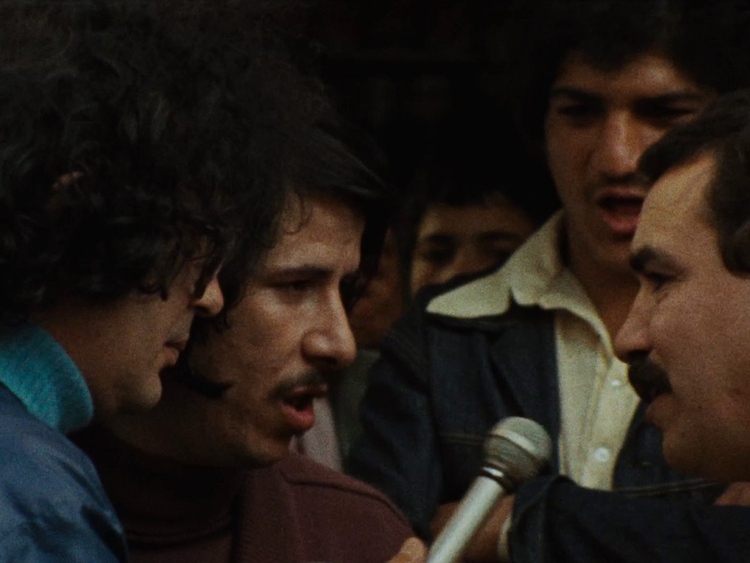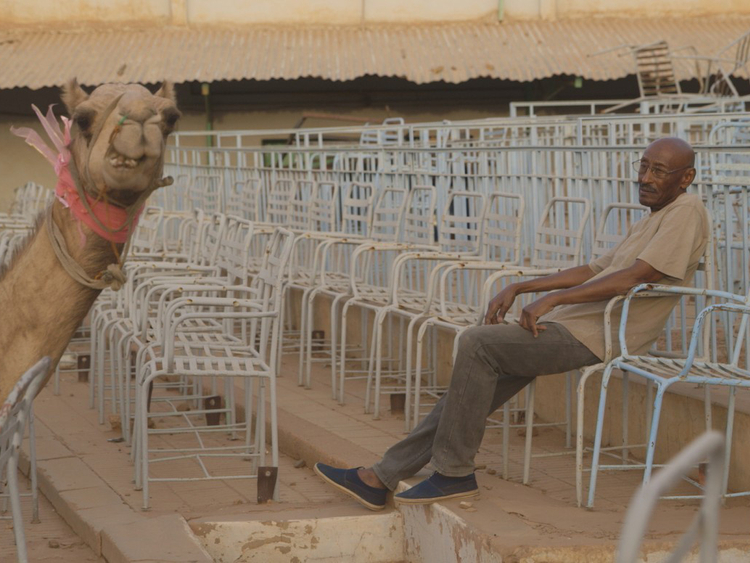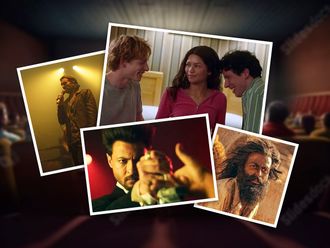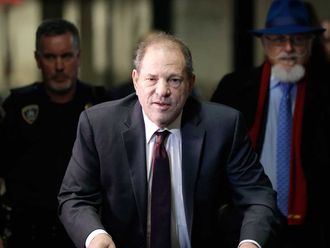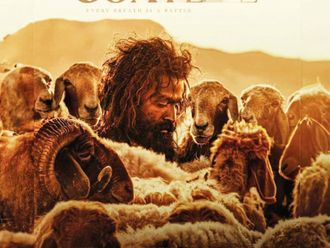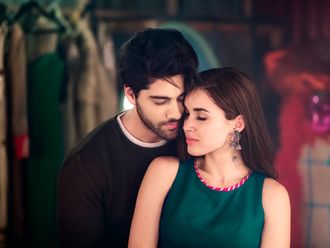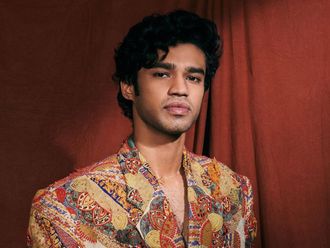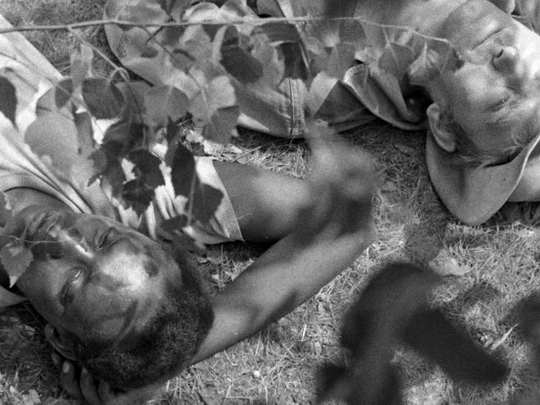
Regardless of the isolations and restrictions practised by the Sudanese government and of the censorship against film directors, regardless of the state of abandonment of movie theatres and the conception of cinema as an enemy to suppress, the new film season in Sudan can be considered fertile, not only in terms of the abundance of new productions but also in terms of the quality of new films hitting European and international film festivals.
After less than six months since the success earned at the Venice International Film Festival by Hajooj Kuka’s ‘aKasha’, his fellow countryman Suhaib Gasmelbari screened his documentary ‘Talking About Trees’ at the 69th Berlin Film Festival, winning the award for Best Documentary.
‘Talking About Trees’ tells the story of Sulaiman Elnour and of three other members of the Sudanese Film Club as they attempt to revive an old theatre. The four directors, born between 1945 and 1951, are united not only by their love for cinema, by their passionate desire to restore an old action film and gather attention on the history of Sudanese cinema, but also by the fact that they’ve all studied filmmaking in exile. They tirelessly attempt to convince the theatre owners to stand beside them, but they repeatedly face resistance. In the meantime, they meet and talk about the past, including experiences of torture and persecutions as artists part of the opposition. They read old letters written in exile and dream of a Sudan in which arts and intellectual thought can be free.
Suhaib Gasmelbari, puts the history of his country at the centre of the film, underlining the current situation of a country shook by continuing crises. Rather than “assassinating the father” and freeing the youth from the umbilical cord of the older generation, the director chooses to implement the principle of “letting the father live again” in which the four masters of Sudanese cinema, together and through them, formed the greatest preoccupation of their life.
Through this journey, the director brings back his four protagonists. and with them the audience, to the beginning of the ‘70s, when some signals of progressive politics, encouraged Ibrahim Shaddad and his colleagues in setting up the Sudanese Film Club, attempting to put in place what they had learnt in film schools abroad.
While Suhaib Gasmelbari accompanies the four protagonists towards the desired film screening, his fellow countrywoman Marwa Zein accompanied a group of young women who tried to accomplish something close to a miracle. In the documentary ‘Kharthoum Offside’, the director traces the path of the women who decided to challenge traditions and defend their freedom to play football. Sara and her friends dream of creating the women’s national football team of Sudan and to participate in the selection for the women’s World Cup.
‘Khartoum Offside’ provides a rundown on the daily life of Sudan’s capital Khartoum, and shows how traditions, politics and religion set the rhythm and the quality of women’s lives. Maybe Sara and her friends will never manage to kick the ball in an official match, but they nonetheless achieve to score in the goal of obscure traditions.
The Berlinale completed the film portrait of Sudan by celebrating four Sudanese directors who screened some of their restored titles like ‘The Tomb’ and ‘The Station’ by Mehdi Mehdi, ‘It Still Rotates’ by Suleiman Elnour and three films by Ebrahim Shaddad: ‘The Rape’, ‘The Camel’ and ‘The Hunting Party’.
The festival also screened one of the classics of Moroccan cinema, ‘About Some Meaningless Events’ directed by Mostafa Derkaoui in 1974.
Around the port’s streets and popular bars of Casablanca a group of filmmakers conduct discussions with people about their expectations of, and aspirations for the emerging Moroccan national cinema. When a disgruntled worker kills his superior accidentally, their inquest shifts focus, and they begin to probe the content and the motives of the killing. At the heart of ‘About Some Meaningless Events’ there is an interrogation on the role of cinema (and art) in society, documentary and truth, and what constitutes an urgency for a national cinema that is being born. This unique filmic experience was conceived as independent and collective effort of militant filmmakers, actors, musicians, poets and journalists at a time of heightened repression on freedom of expression in Morocco. It was funded by the sale of paintings by several contemporary painters. The film was first screened in Paris in 1975 but was immediately taxed with censorship and forbidden from the exhibition and export. It was forgotten until a negative print was found in the archive of the Filmoteca de Catalunya in 2016 and restored there. 45 years after its completion, the film will be released.
Apart from Sudan, Arabic cinema at the Berlinanle was represented by the Lebanese Ghassan Salhab with his film ‘An Open Rose’ and by Palestinian filmmakers Akram Zaatari, with his short film ‘The Script’, and Kamal Al Jaafari, with his experimental short ‘It’s a Long Way from Amphioxus’. Three others shorts from Egypt, Iraq and Kuwait were part of collateral sections of the festival.
— Erfan Rashid is an Iraq-born journalist and film critic based in Italy. He’s the former director of Arabic Programmes at the Dubai International Film Festival.



